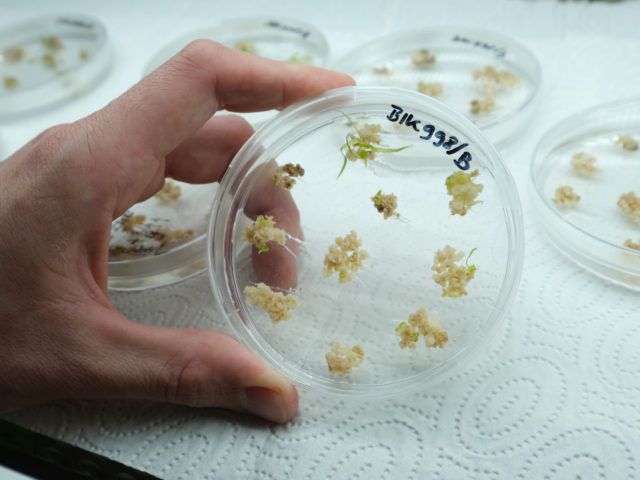Using gene editing to make more resilient crops could help in the fight against food insecurity, proponents of the technque have told British ministers.
Gene editing — a somewhat controversial technique involving the manipulation of plants to promote desirable properties — could help boost crop resilience, and by extension fight food insecurity, a number of experts have told ministers in Britain.
Such experts now want to see the technology adopted across the United Kingdom, with Westminster having already signalled a certain degree of approval for the accelerated method of traditional plant cultivation in this month’s Queen’s Speech.
According to a report by The Times, proponents of gene editing are now looking to get Scotland’s devolved government to warm to the tech, which they believe would lower costs to farmers while bumping production.
“…we need to develop crops quickly which can adapt and are resistant to climate change and pests and whose cultivation is more environmentally friendly,” said Professor Lesley Torrance of the James Hutton Institute, who backed a planned Westminster bill that would force the Scots to accept the use of the method north of the internal UK border.
“The application of precision breeding research is already happening in some countries which may result in crops which are easier to grow, more climate positive, require less use of biocides and fertiliser and potentially more economically viable,” the professor continued. “It will be up to the consumer to weigh up the merit of these different approaches and we need to do the science and provide the evidence that helps those decisions”
Meanwhile, officials from Scotland’s farming and food and drink industry also said they wanted to see Scotland warm to gene editing, with the Scottish head of the National Farmers’ Union saying that it would help local producers boost production while also going green.
Green Agenda: Minister Ignores Ukraine Food Crisis Warnings in Favour of Solving ‘Nature Emergency’https://t.co/J2tbJCOZEI
— Breitbart London (@BreitbartLondon) March 14, 2022
Despite the calls to accept the technology, officials from Scotland’s devolved parliament appear to be remaining steadfast in their opposition to gene editing, voicing opposition to any attempts from Westminster to achieve compliance by force through a UK-wide bill on the issue.
Something Scotland could do to increase its agricultural yield without rushing towards gene edited crops could be halting the process of turning agricultural land over to rewilding.
One of the country’s climate crazy ministers previously rejected calls to expand the land allowed to be used to farm wheat for fears it would get in the way of the country’s rewilding efforts.
“We are still in a nature emergency that hasn’t gone away… so it’s a no,” said Canadian born Green party minister Lorna Slater in her rejection of farmers’ pleas that they be allowed to plant more crops to mitigate the effects of shortages on Scottish consumers.

COMMENTS
Please let us know if you're having issues with commenting.